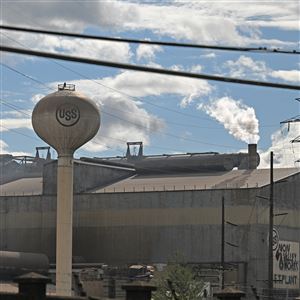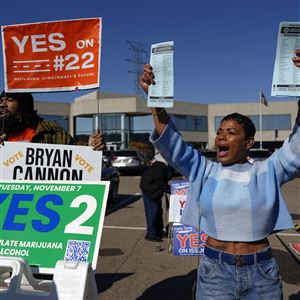NEWARK, N.J. -- A real estate developer was arrested on a federal bank fraud charge yesterday, accused of cheating a Pittsburgh-based bank of about $22 million by attempting to deposit two, $25 million checks drawn on a closed account and then withdrawing nearly half the money.
Developer Solomon Dwek, the son of a prominent Monmouth County rabbi, was released on $10 million bond.
The FBI complaint against Dwek, 33, of Ocean Township, followed two weeks of wrangling with PNC Bank, which has sued Mr. Dwek in state Superior Court for Monmouth County.
He is accused of depositing the first check, for $25.2 million, the afternoon of April 24 at a drive-through window at PNC's branch in Eatontown after convincing bank personnel that the closed account was being reopened and that funds to cover the check were being wired, the complaint said. The money was put in an active account controlled by Mr. Dwek, the FBI said.
The next morning, by telephone, Mr. Dwek made four wire transfers totaling $22.8 million from the account into which the worthless check had been deposited, according to the complaint.
Later on April 25, Mr. Dwek went to the PNC branch in Asbury Park and attempted to deposit a check for $25 million, also written on the closed account. The bank, having determined that Mr. Dwek's claim of an impending infusion was false, voided that check, the FBI complaint said.
Mr. Dwek has repeatedly lied to PNC officials since, the FBI said.
Mr. Dwek's father, Rabbi Isaac Dwek, did not speak to reporters after the hearing. The rabbi is president of the Deal Yeshiva, a private school, where Solomon Dwek is vice president.
His lawyer, Michael B. Himmel, told U.S. Magistrate Judge Mark Falk that his client is trying to resolve matters with the bank.
"They are working to make PNC whole," Mr. Himmel said.
The issue is complicated because Superior Court Judge Alexander D. Lehrer, in Freehold, has frozen Mr. Dwek's assets, the lawyer said.
Judge Falk asked if that order included more than 200 properties. Mr. Himmel said yes.
"While it remains premature to discuss possible outcomes, we are hopeful this recent development results in a timely resolution," PNC spokesman Brian Goerke said yesterday.
He declined to comment on whether proper procedures were followed in the deposit of the first check, citing the pending litigation.
In its lawsuit, PNC said Mr. Dwek had maintained personal and business accounts with the bank for about five years.
PNC said that despite assurances that he would cover the $22.8 million overdraft, Mr. Dwek had only deposited $3.1 million as of May 1.
The bank fraud charge carries up to 30 years in prison and a $1 million fine.
First Published: May 12, 2006, 4:00 a.m.
















